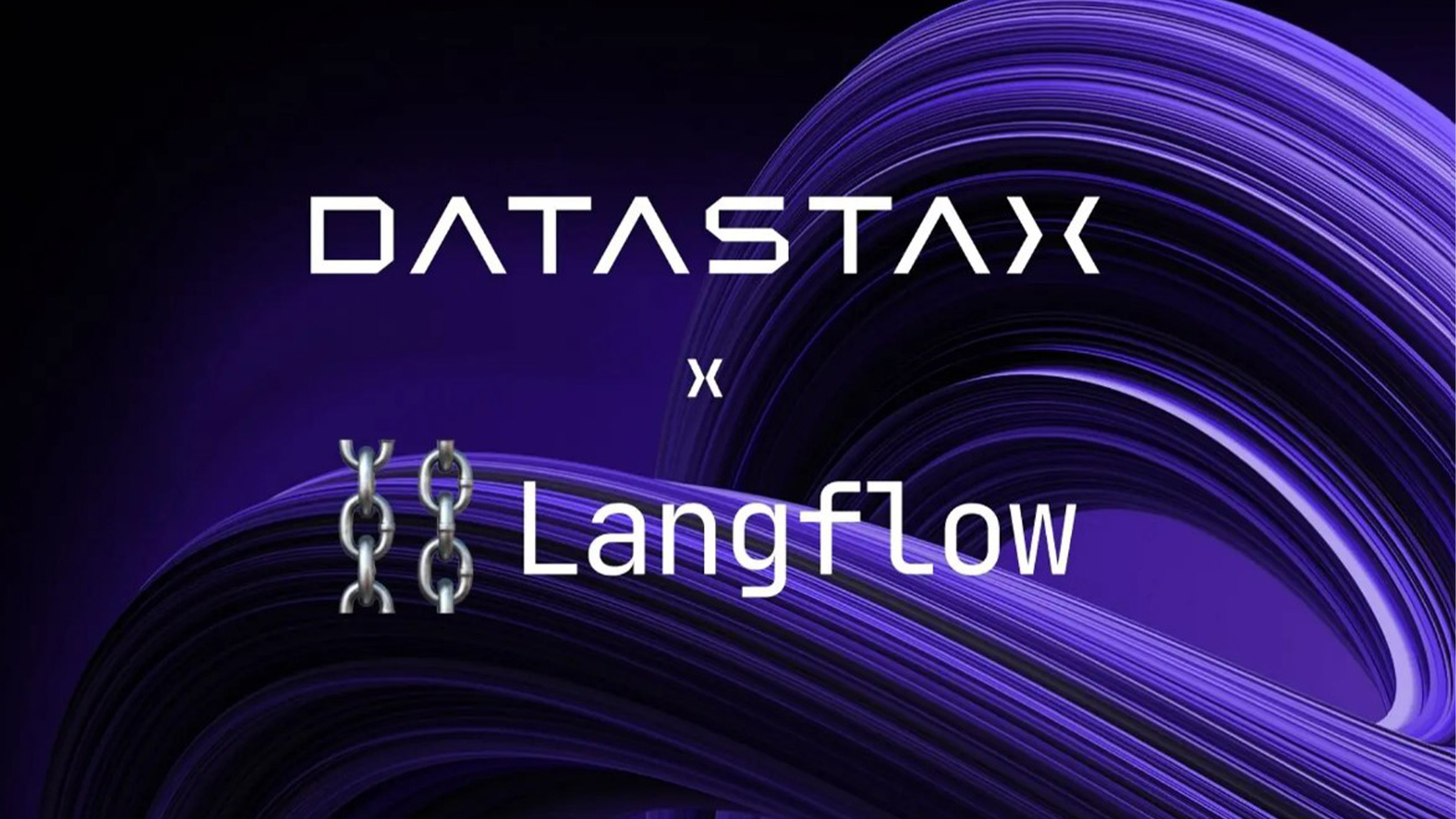DataStax wants to create a “one-stop generative AI application stack” with Langflow acquisition
DataStax said Langflow will help reduce app and LLM creation and deployment times from weeks to minutes


Stay up to date with the latest Channel industry news and analysis with our twice-weekly newsletter
You are now subscribed
Your newsletter sign-up was successful
DataStax has agreed to acquire Logspace, the AI startup behind Langflow, an open source visual framework used for building retrieval-augmented generation (RAG) applications.
Langflow is designed to help developers build generative AI applications by using and combining Python-based composable building blocks and various pre-built components.
The open source, low-code offering provides a visual-based environment for developers to drag-and-drop pre-built components, the firm said, helping to significantly reduce the time it takes to create and deploy LangChain-based applications and large language models (LLMs) from weeks to minutes.
Langflow’s community-based ecosystem builds, shares, and reuses components that can be accessed via the Langflow Store, enabling developers to test, reuse, and share flows to iterate on RAG applications with greater control and reduced hallucinations.
By integrating Langflow into its database offering, DataStax said it is creating a “one-stop generative AI application stack” that offers flexible deployment options - such as integration with DataStax Astra DB, access to an extensive collection of Python libraries, as well as integration with LangChain.
“We are laser-focused on providing developers with tools that enable them to easily build RAG applications with the simplest and fastest path to production,” commented Chet Kapoor, CEO and chairman of DataStax.
“This acquisition is transformative to us and transformative to the industry.
Stay up to date with the latest Channel industry news and analysis with our twice-weekly newsletter
“Langflow is an incredibly hot AI startup and our work with them will put us front and center for all RAG application development – it’s not just a tool or framework, it’s a vibrant ecosystem where developers are building, selling, and reusing AI components that are going to shape the next generation of AI applications.”
Founded in 2020 by CEO Rodrigo Nader and CTO Gabriel Luiz Freitas Almeida, Logspace is headquartered in Uberlândia, Minas Gerais, Brazil, and currently lists a total of seven staff on its books. The company launched Langflow in 2023.
DataStax driving AI capabilities
For DataStax, the acquisition marks the latest step in integrating new AI capabilities, as organizations increasingly look to the technology to drive growth and profit.
In July 2023, the firm added a new vector search tool to its Astra DB Database as a Service (DBaaS) platform, which is built on the open source Apache Cassandra database, to provide long-term memory for AI applications using LLMs.
November last year saw the company launch RAGStack, an out-of-the-box RAG solution designed to simplify and streamline the implementation of RAG applications built with LangChain.
Upon completion of its latest acquisition, DataStax said Langflow will continue to operate independently and will remain focused on project innovation through its community of contributors.
RELATED WHITEPAPER

“We couldn’t be more excited about joining the DataStax team and supercharging our ability to grow the Langflow platform, bringing it to more researchers, developers, enterprises and entrepreneurs working on generative AI applications,” said Rodrigo Nader, CEO, Langflow.
“We couldn’t be more excited about joining the DataStax team and supercharging our ability to grow the Langflow platform, bringing it to more researchers, developers, enterprises and entrepreneurs working on generative AI applications,” said Rodrigo Nader, CEO, Langflow.
“With DataStax, we will be fully focused on the execution of our product vision, roadmap, and community collaboration, and will continue to add to the greatest breadth of integrations across different AI ecosystem projects and products–including more data sources and databases, models, applications and APIs.”
Dan is a freelance writer and regular contributor to ChannelPro, covering the latest news stories across the IT, technology, and channel landscapes. Topics regularly cover cloud technologies, cyber security, software and operating system guides, and the latest mergers and acquisitions.
A journalism graduate from Leeds Beckett University, he combines a passion for the written word with a keen interest in the latest technology and its influence in an increasingly connected world.
He started writing for ChannelPro back in 2016, focusing on a mixture of news and technology guides, before becoming a regular contributor to ITPro. Elsewhere, he has previously written news and features across a range of other topics, including sport, music, and general news.
-
 Pulsant unveils high-density data center in Milton Keynes
Pulsant unveils high-density data center in Milton KeynesNews The company is touting ultra-low latency, international connectivity, and UK sovereign compute power to tempt customers out of London
-
 Anthropic Labs chief claims 'Claude is now writing Claude'
Anthropic Labs chief claims 'Claude is now writing Claude'News Internal teams at Anthropic are supercharging production and shoring up code security with Claude, claims executive
